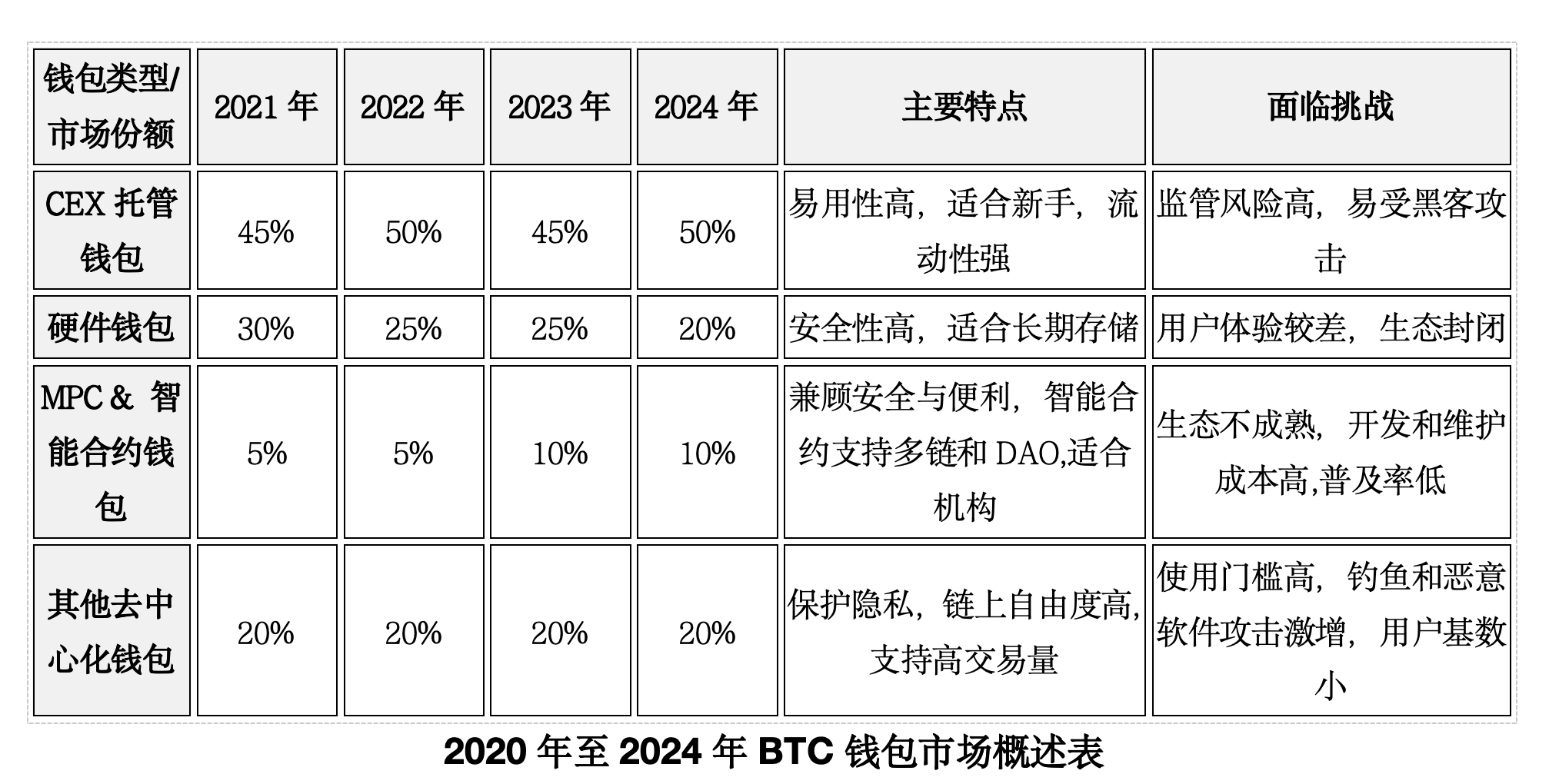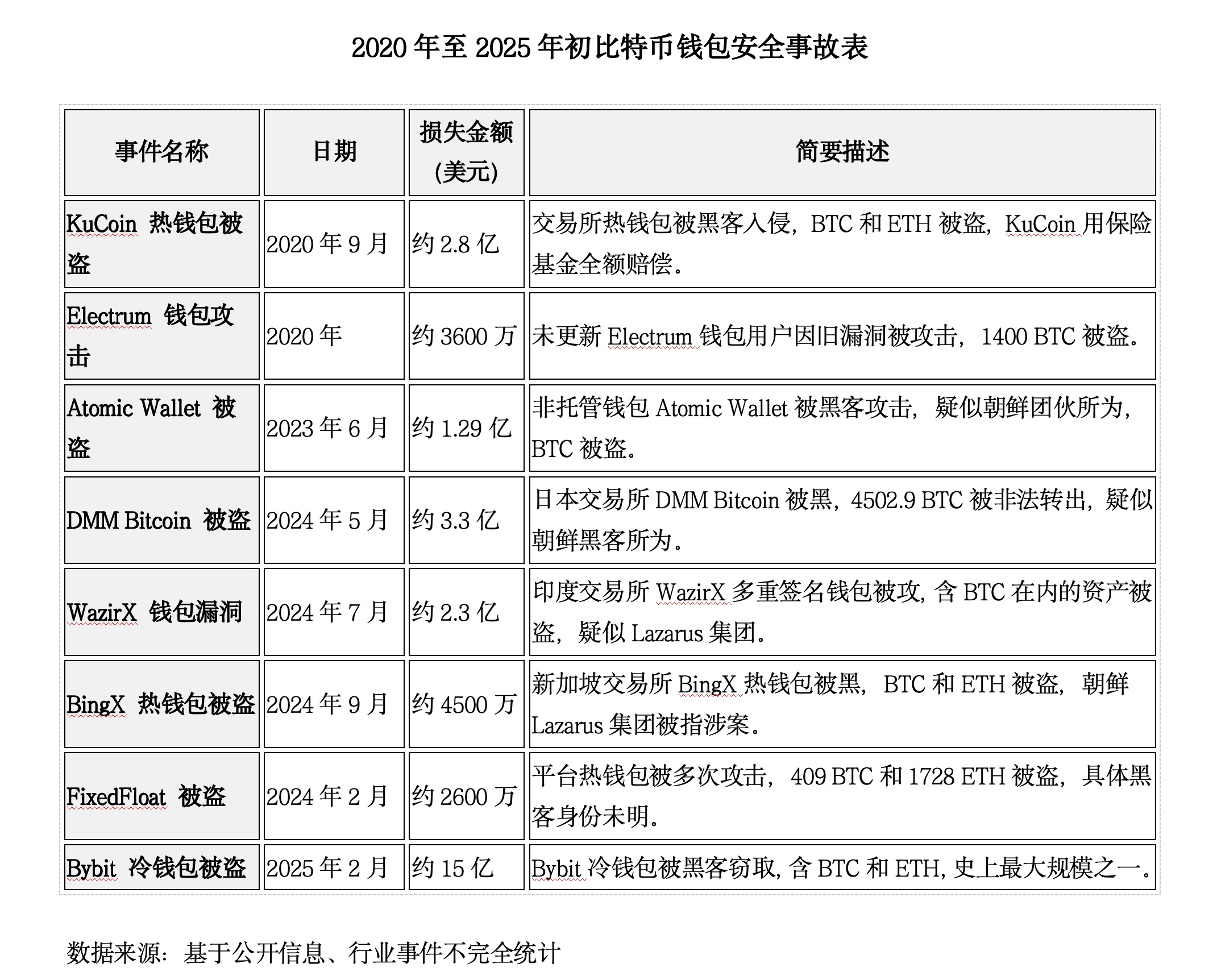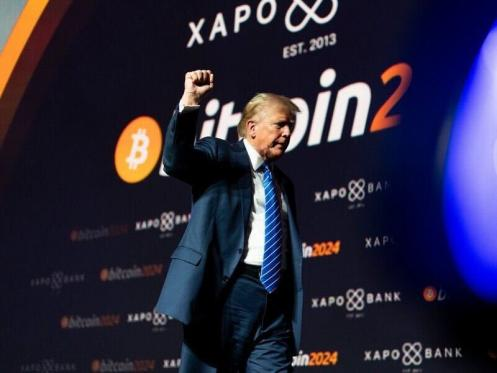BTC wallet battle: From the competition for the trillion-dollar market to the reconstruction of ecological, who will dominate the next decade?

Reprinted from panewslab
03/13/2025·1Mintroduction
Is BTC wallet a deposit tool or an ecological entrance?
Since the birth of Bitcoin, wallets have always stood on the opposite side of "security" and "convenience". If you want to be absolutely safe, you must keep your private key yourself, even if it means it is lost, it cannot be retrieved; if you want it to be more convenient, you have to rely on centralized custody, which means you lose control of the assets. For ten years, this tug has never stopped.
But the market has given new answers. Global cryptocurrency holders have exceeded 600 million, and asset management needs far exceed the simple "storage". CEX wallets still dominate traffic, but non-custodial wallets are growing rapidly, and new models such as MPC and smart contract wallets are constantly emerging, trying to find the best solution between "security" and "experience". BTC wallet is no longer just a place to deposit coins, but has become a traffic entrance to the entire Bitcoin ecosystem.

The wallet battle has long surpassed the competition for market share, but is a game about rulemaking. In this game of intertwined technology, capital and regulation, whoever can find a balance between "safety, compliance, and user experience" will be able to control the future direction of BTC.
Ten years ago, we were concerned about how BTC should be stored; today, what we are competing for is who BTC should belong to in the future.
**1. Panoramic view of the BTC wallet market—explosive growth and
ecological differentiation**
BTC 's wallet market is not only expanding in scale, but its functional boundaries are also being reshaped. The Bitcoin wallet, which was once simply regarded as a "currency deposit tool", has now become a frontier battlefield for Bitcoin ecological competition. The market has undergone drastic changes in the past few years. Bitcoin ETFs have accelerated the entry of institutional funds, Ordinals inscriptions have exploded, demand for on-chain transactions has soared, and the market size of BTC wallets has increased from US$8.42 billion to US$10.51 billion in just a few years. The crazy growth market has brought about not only the influx of funds and users, but also caused different types of wallets to launch a "entry battle" - CEX hosting, hardware wallets, and emerging wallets, each seizing the territory and trying to control the traffic entrance of the BTC ecosystem.

Data source: Based on Glassnode active address data (38 million in 2021 to 45 million in 2024), Chainalysis trend report, wallet manufacturer market performance, industry events incomplete statistics
CEX custodial wallet: traffic hegemony and trust crisis "The user's first bitcoin is likely to be bought from the exchange." This gave Binance, Coinbase and other CEXs to gain a first-mover advantage in the wallet competition. Coinbase relies on ETF custody and managed BTC assets soared to US$171 billion in Q1 2024, while Binance Web3 wallet quickly expanded to 6 public chains, trying to connect transactions and DeFi scenarios. But after the FTX crash, the CEX wallet’s trust crisis was completely ignited. Users have begun to re-examine the risks of centralized custody. The sales of hardware wallets soared by 2.3 times in 2023, indicating that more and more people are looking for safer asset management methods. Faced with the challenge, CEX Wallet began to introduce MPC (multi-party computing) technology to try to find a balance between compliance hosting and user autonomy, but for many users, "decentralization" still means distrust of third-party hosting.
Hardware wallet: security barrier, or ecological island? As a traditional non-hosting solution, hardware wallets such as Ledger and Trezor have long held 60% of the global market share. However, as Ordinals empowers the BTC ecosystem, the demand for on-chain interactions has surged, and hardware wallets have gradually become an "ecological island" due to closed systems. In order not to be left behind by the progress of the times, Ledger Live, Trezor Suite and other products have begun to try to support NFT and multi-chain asset management, but the data shows that users are more willing to sacrifice 5% of security in exchange for 80% of convenience, and the market barriers of hardware wallets are gradually weakening.
Emerging Wallet: The dimensionality reduction and reshaping the user experience are a group of "anti-traditional" emerging players: Fireblocks: Through MPC technology, 1,500 institutions including Goldman Sachs have secured their custody of US$200 billion in assets, impacting traditional custodians.
- UniPass: Remove the mnemonic words and log in with email. It attracted 220,000 retail investors within half a year, simplifying the threshold for using BTC Layer2.
- Stacks: Through built-in incentives in the wallet, 64% of users hold STX tokens to create a Bitcoin version of the "points system".
At this time, the wallet dispute was no longer just a contest of market share, but a contest of ecological dominance. But in this war, the wallet did not find the optimal solution, but was deeply trapped in multiple challenges in technology, security, and user experience. CEX, hardware wallets, and emerging wallets each bet on different futures: the ideal of decentralization, the reality of user experience, and the bottom line of security. The struggle between the three is pushing BTC wallet into a more complex battle situation.
2. Dilemma of implementation: Three big mountains of survival challenges
The growth of market size does not mean that BTC wallets have found the optimal solution. On the contrary, the expansion of user base and the increase in transaction activity are exposing the shortcomings of BTC wallets more and more obvious. The three major problems of main network congestion, hacker attacks, and complex operations not only plague developers, but also constantly persuade new users to withdraw. Bitcoin wallets are facing a survival challenge that determines the future.

-
Main network congestion: transaction costs soar and performance difficulties intensify In April 2024, the congestion on the Bitcoin main network was comparable to that of the Beijing East Third Ring Road at the morning rush hour. The Runes agreement was launched with a halving market, and the single transaction fee was as high as US$128, which put ordinary users in the dilemma of "transfers are more expensive than assets themselves." Although Layer2 solutions continue to emerge, their performance is still limited, and the on-chain confirmation time is too long, resulting in hindering the micro payment and interactive experience. Optimization of BTC wallet is no longer a matter of reducing transaction costs, but how to enable users to achieve a smooth experience without being persuaded to withdraw from the technical threshold.
-
Security Challenges: Dilemma of Hackers, Private Keys, User Trust. The security of Bitcoin wallets has always been a "cat and mouse game". In the past five years, the cumulative losses of hacker attacks caused by wallet vulnerabilities have exceeded US$3 billion. Among them, the Atomic Wallet vulnerability in 2023 caused the theft of more than US$100 million of various crypto assets, exposing the technical risks of non-custodial solutions. But the problem is not just hacking. Problems such as missing mnemonic words, confusing private key management, and cross-chain bridge loopholes have made ordinary users still unable to start in the face of security. The higher the security threshold, the greater the cost of using decentralized wallets, which ultimately leads many users to return to the embrace of centralized hosting.
-
User experience dilemma: The operation is complicated and it is difficult to break through the circle of Xiaobai user "Download the wallet for five minutes and understand the operation for two hours." The high learning threshold of Bitcoin wallet is almost the common experience of every novice BTC user:
68% of novice users were stuck halfway due to Gas fee calculation errors during their first transfer;
On average, it takes 3 hours for ordinary users to complete the first cross-chain interaction;
Only 9% of BTC Layer2 users truly understand the Gas token mechanism.
The essence of the user experience gap is not the UI design problem, but the Bitcoin ecosystem still lacks adaptation to ordinary users. Although some wallet manufacturers are already trying to reduce complexity: canceling mnemonics and using email login, automating the pledge process to "reward one-click interest", and using zero-knowledge proof technology to shorten cross-chain time... But they still have not changed the core pain points of BTC wallets - users must understand private keys, gas fees, and on-chain interactions in order to truly control assets. For ordinary people, this still means "the threshold is too high". This is not only a matter of user habits, but also a key variable in whether BTC wallets can truly enter the mainstream in the future.
Faced with these difficulties, BTC wallets are undergoing a key choice: will they become safer and more efficient financial infrastructure, or will they be phased out by users in the difficulties? But what really determines the future of wallets may not be simply technological optimization, but a deeper battle for ecological dominance. When the shortcomings of user experience threaten the basic balance of hundreds of millions of users, a war on the definition of BTC wallets is inevitable.
3. Power reconstruction of BTC wallets: Who can define the next ten
years?
Who can define the next ten years? The answer may be back to who can really dominate Bitcoin. When elements such as DeFi, Layer2, and financialization pour in, the role of Bitcoin has been completely changed. The wallet not only determines how BTC is stored, but also how BTC is used - and whoever can control the flow of BTC funds can control the ecological rules. But the problem is that Bitcoin still has no absolute dominant player. The competition between technology, capital and ecology is still continuing, and every force is trying to define the future of BTC.
1. Technical route: Does BTC still insist on decentralization? The split of Bitcoin wallets reflects two different directions of the BTC ecosystem: should we maintain decentralization or cater to a wider range of user needs?
On the one hand, the complexity of technology still discourages ordinary users, and decentralized wallets still require users to manage mnemonics and calculate gas fees by themselves. Over the past decade, BTC wallet technology upgrades have focused more on security than on real lowering the barriers.
On the other hand, new technological routes are breaking through these limitations. Account abstraction (AA), social recovery, on-chain identity and other solutions are trying to make Bitcoin more "feelless". But does this mean that the BTC ecosystem is compromising to Web2? BTC's technical route choice not only affects the future of the wallet, but also determines that Bitcoin will eventually become a closed value storage tool or a currency that can be truly used in daily life.
2. Capital Game: Is BTC or decentralized finance? If technology determines how BTC is used, then capital is determining the financial attributes of BTC.
CEX (centralized exchange) is transforming BTC with regulatory systems, ETFs make BTC a compliant asset, and the custody model makes BTC gradually controlled by institutions. Is Bitcoin becoming another "digital gold"?
The decentralized ecosystem is still trying to regain control of BTC, Layer2 staking and decentralized custody solutions are still developing, and the BTC DeFi ecosystem is taking shape, but whether it can challenge CEX is still doubtful. Is BTC’s future part of the global financial order or a core asset of the Web3 world? This is not only a technical issue, but also a capital choice.

3. The ultimate battle for wallets: Who really defines BTC?
In this split ecosystem, the future of BTC is still inconclusive. But one thing is certain: the wallet is already a key entrance to the flow of BTC funds, and the power to control the wallet is also reshaping the financial rules of Bitcoin. Bitcoin is no longer just an evolution of code rules, but a game field of global economic power:
·If CEX wallets dominate, BTC may become a global reserve asset, be included in the traditional financial system, and be more deeply affected by regulation.
·If the DeFi ecosystem can win more users, BTC may form an independent on-chain financial system and truly become the pillar of the decentralized economy.
·If technological breakthroughs bring lower thresholds, BTC may even become a payment tool that is used by global users on a daily basis.
Written at the end:
Who should BTC belong to in the future? The answer to this question has surpassed the competition between products and markets and has become the ultimate battlefield that determines the Bitcoin form.
The war between Bitcoin wallets may not have a clear end. The essence of this war is the ultimate showdown between Bitcoin's code, namely law, and user first, and wallet is exactly the forefront of the confrontation between the two.
CEX is building a compliant financial system, Layer2 is trying to get BTC into the world of smart contracts, while smart wallets lower the threshold and allow more people to enter the world of crypto. They are all defining the different futures of BTC, but the ultimate winner may not be any of them.
The Bitcoin ecosystem is entering a new decade. It is still evolving, expanding, and still looking for the form that suits it best.
Today, what we see is the competition of Bitcoin wallets, the game, the interweaving of power between technology, capital and ecology. But ten years later, when we look back at today, we may truly understand what kind of Bitcoin future this competition for BTC wallet has shaped.
The ecological rules of Bitcoin are still evolving and still not finalized. The end of the wallet war may be further than we think.


 jinse
jinse

 chaincatcher
chaincatcher